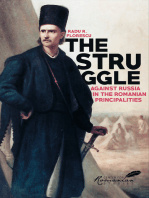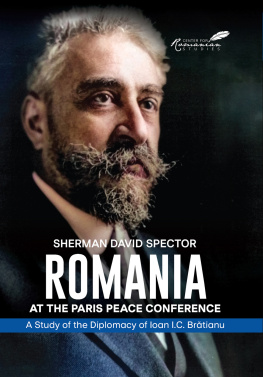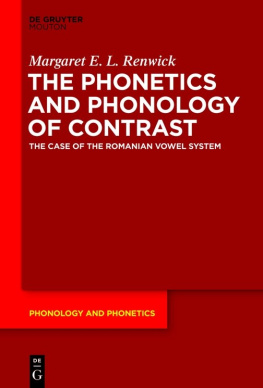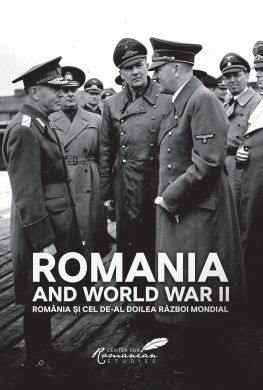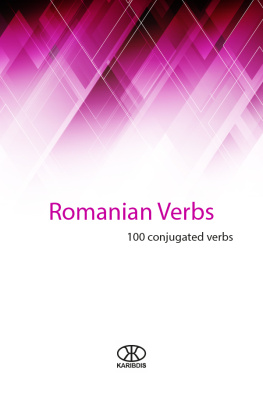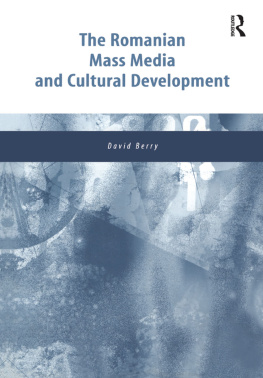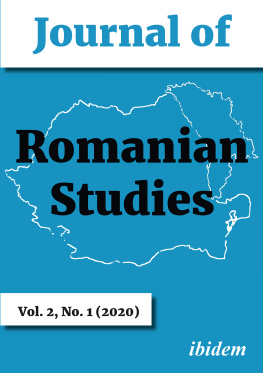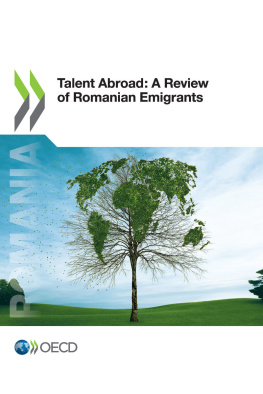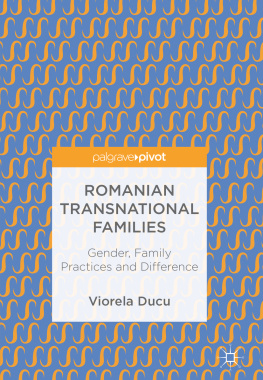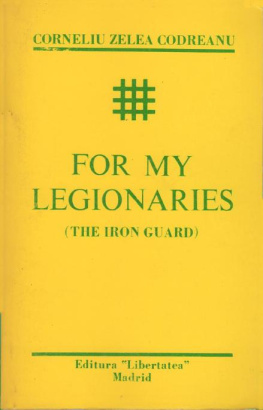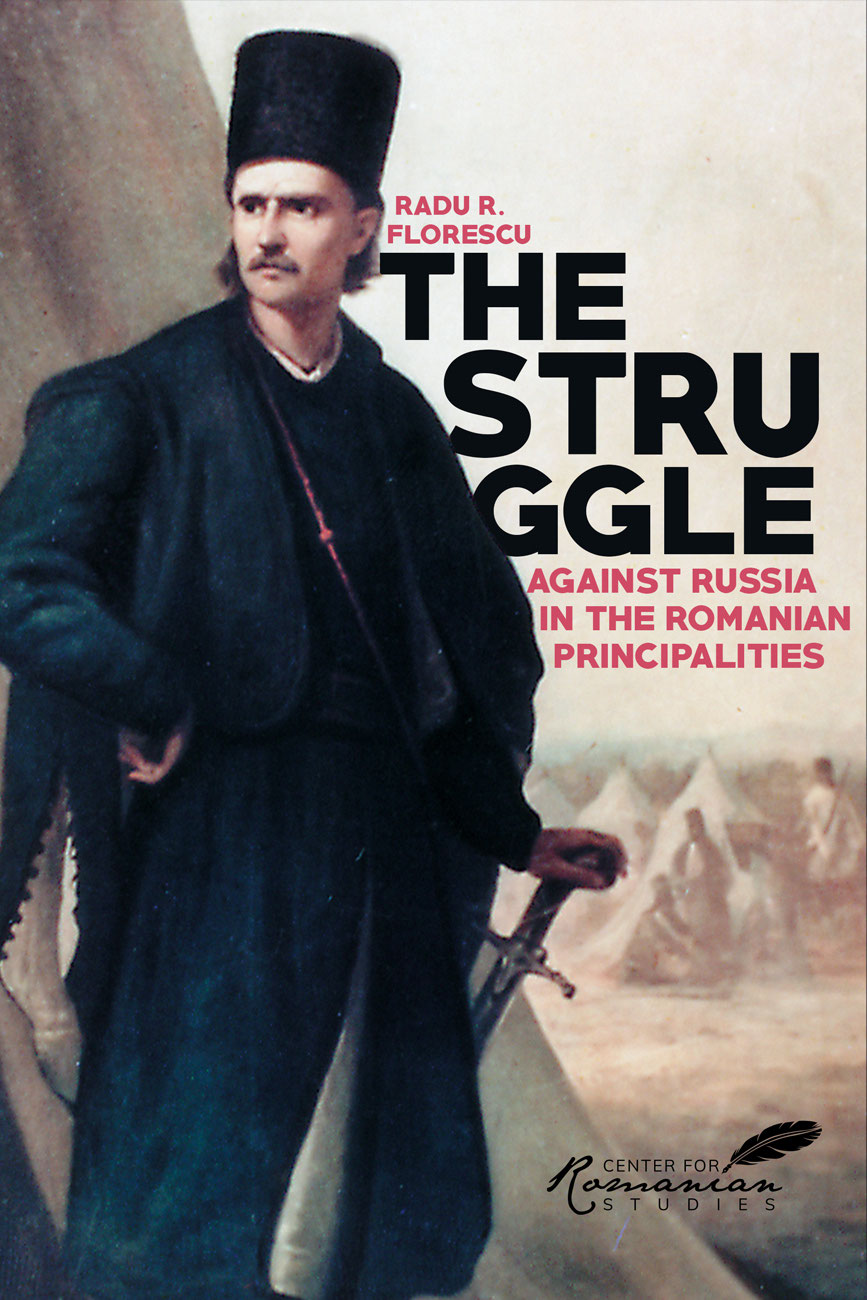
THE STRUGGLE AGAINST RUSSIA IN THE ROMANIAN PRINCIPALITIES
A Problem in Anglo-Turkish Diplomacy, 1821-1854
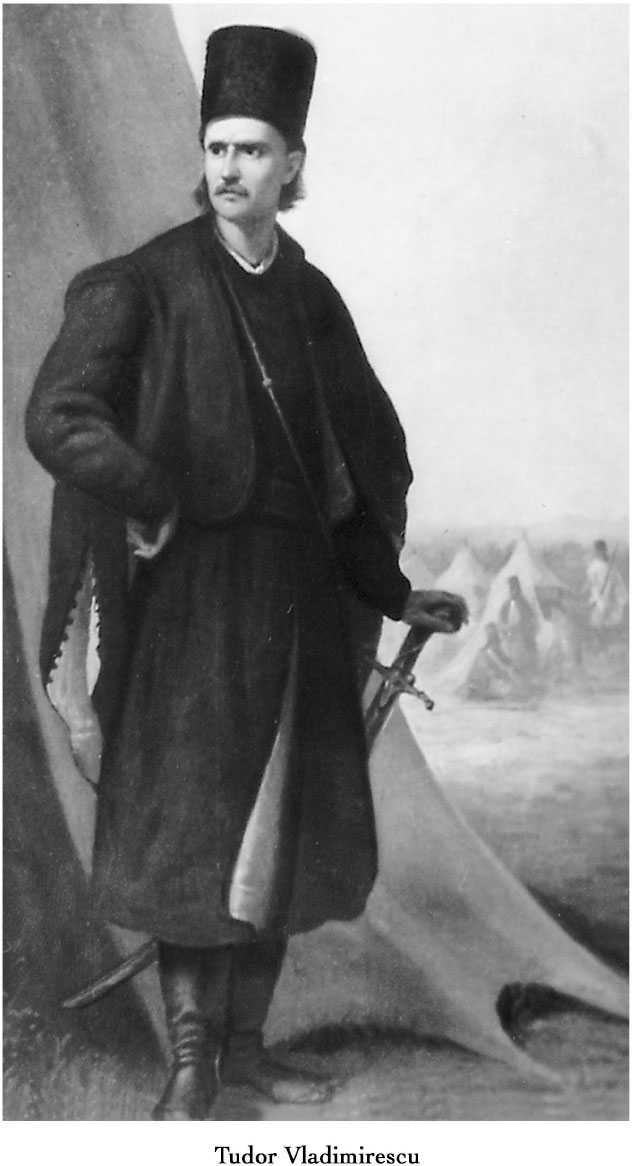
Radu R. Florescu
THE STRUGGLE AGAINST RUSSIA IN THE ROMANIAN PRINCIPALITIES
A Problem in Anglo-Turkish Diplomacy, 1821-1854
Foreword by Kurt W. Treptow

The Center for Romanian Studies
Las Vegas Chicago Palm Beach
Published in the United States of America by
Histria Books, a division of Histria LLC
7181 N. HualapaiWay, Ste. 130-86
Las Vegas, NV 89166 USA
HistriaBooks.com
CenterforRomanianStudies.com
The Center for Romanian Studies is an independent academic and cultural institute with the mission to promote knowledge of the history, literature, and culture of Romania in the world. The publishing program of the Center is affiliated with Histria Books. Contributions from scholars from around the world are welcome. To support the work of the Center for Romanian Studies, contact us at info@centerforromanianstudies.com
All rights reserved. No part of this book may be reprinted or reproduced or utilized in any form or by any electronic, mechanical or other means, now known or hereafter invented, including photocopying and recording, or in any information storage or retrieval system, without permission in writing from the Publisher.
Library of Congress Control Number: 2020944579
ISBN 978-973-98091-3-9 (hardcover)
ISBN 978-1-59211-026-1 (paperback)
ISBN 978-1-59211-237-1 (eBook)
Copyright 1998, 2022 by Histria Books
I dedicate this book to
R.W. SETON-WATSON
and
THAD WEED RIKER
two scholars and friends of Romania, who taught me at a dark moment in exile that the value of history lay not simply in deriving consolation from historical parallels but in seeking new hope and inspiration for the future.
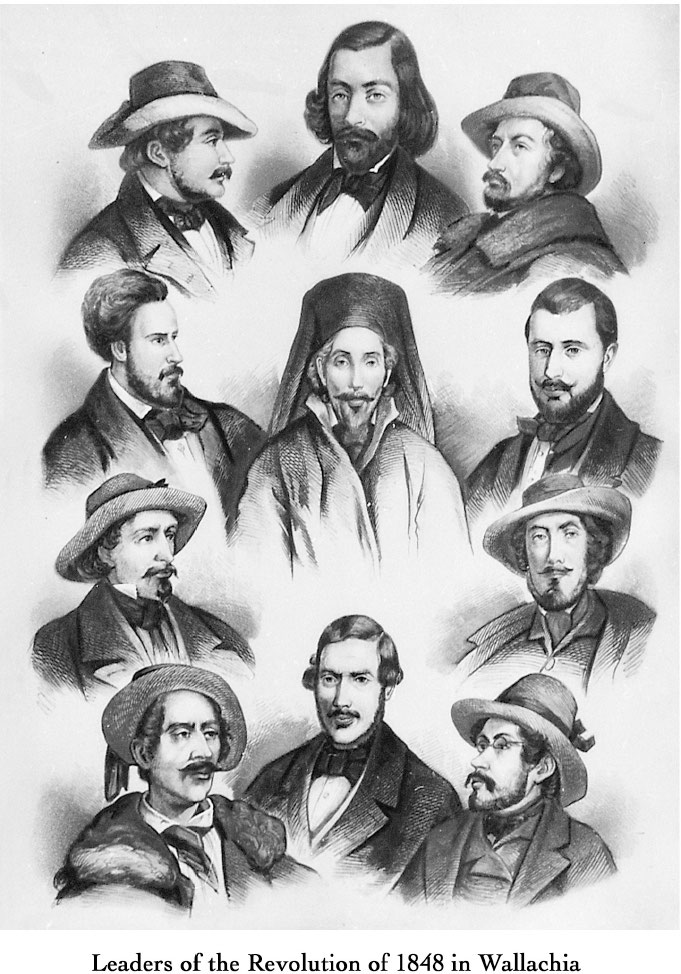
Contents
Foreword
The period leading up to the unification of the Romanian principalities is one of the most interesting periods in modern Romanian history. It was a time of effervescence, a period that witnessed the birth of new ideas and the struggle between revolution and reaction. The Romanian principalities, located on the crossroads between east and west, were at the center of the conflict between the various empires dominating this part of Europe, making them a permanent subject of international diplomacy. With the expansion of Russia in the Balkans, amidst the decline of the Ottoman Empire, the struggle against Russia in the Romanian principalities, supported by Anglo-Turkish diplomacy, took on international significance.
This historical context makes the publication of the present work all the more important as it is the only English language study that thoroughly analyzes the international situation of the Romanian principalities during the period from 1821 to 1854. The Struggle Against Russia in the Romanian Principalities is a comprehensive analysis of one of the most important aspects of this period that would eventually lead to the unification of the Romanian principalities of Wallachia and Moldavia in 1859, establishing the basis for the modern Romanian state.
The author, Radu R. Florescu, is one of the leading specialists on Romanian studies in the United States. Born in Bucharest, he moved to Great Britain where his father was a diplomat in the 1930s and 1940s. Following the Soviet installation of a Communist regime in Romania at the end of World War II, the family could not return to their native country. Radu Florescu received his B.A. and M.A. degrees from Christ Church, Oxford University, before moving to the United States where he completed his Ph.D. in history at Indiana University. He went on to a distinguished career as professor of history at Boston College where he is also director of the East European Research Center. The Struggle Against Russia in the Romanian Principalities, originally published in Munich in 1962, was his first book. He went on to write a series of articles and books dealing with medieval and contemporary Romanian history. Among his best known works are Dracula: A Biography of Vlad the Impaler and Dracula: Prince of Many Faces, both written in collaboration with his Boston College colleague Raymond T. McNally.
In recognition for his many years of service to Romanian culture, the government of Romania named Radu Florescu its honorary consul in Boston. As Professor Florescu plans to retire from Boston College at the end of the 1997-1998 academic year, the publication of a new edition of his first book is a fitting tribute to his distinguished academic career.
Kurt W. Treptow
Iai, June, 1997
Introduction
Though there have been some excellent monographs on what can be termed the period of Russian domination in the Principalities of Moldavia and Wallachia, few historians have viewed this era as a European diplomatic problem, and none to my knowledge has considered it as a definite issue in Anglo-Turkish diplomacy. The reason is not far to seek: the native historian has been too much absorbed in the struggle for national regeneration, the Western too much inclined to regard the advent of the Romanian question as a European problem, with the Congress of Paris in 1856. There is another surprising fact. Because of the lack of indigenous sources and the comparative inaccessibility, in the past, of the archives of St. Petersburg and Constantinople, French, Austrian, and Prussian consular and diplomatic records have served, to a possibly disproportionate extent, as a major documentary source for the study of Romanian nineteenth-century history.
English source material, however, apart from the narratives of this lone traveller or that dubious adventurer, has not been drawn upon, and it was only comparatively recently that the Romanian Academy published an (incomplete) transcript of documents obtained from the Public Record Office in London.
Though the generation of 1848 and bona fide Romanian historiographers brought up in the intellectual climate of the Collge de France may have accepted uncritically the notion of the comparative remoteness of perfidious Albion, I think that a lack of published material and a certain diffidence on the part of the Foreign Office may have been the chief deterrents to a closer examination of the London Archives. It certainly seems incredible that when the most distinguished of Romanian historians, Nicolae Iorga, felt impelled to fill this gap by writing a short history of Anglo-Romanian relations the only account in any language on the subject he should have consulted French, Austrian, and Prussian, in fact any but British sources. It was thus hardly surprising that the resulting synthesis suffers from certain gaps and inaccuracies, readily admitted by the author. It was largely for these reasons that I decided to complete the picture he had so ably sketched.
A younger generation of Romanian historians, in their quest for more critical interpretations, not only manifested greater interest but encountered more and more historical problems the solution to which depended upon British documentation alone; one scholar writing before World War II, Professor Andrei Oetea, by exploiting material obtained from the Public Record Office almost wholly revolutionized the accepted interpretation of the Wallachian revolution of 1821. Unhappily, this author later retracted his views for political reasons and put himself at the disposal of a cause inimical to scientific historical research. Ironically enough in view of Professor Oeteas recantation, however, a leading Communist historian was reluctantly forced to admit that the more thorough investigation of British documents has brought to light a number of new facts.
Next page
